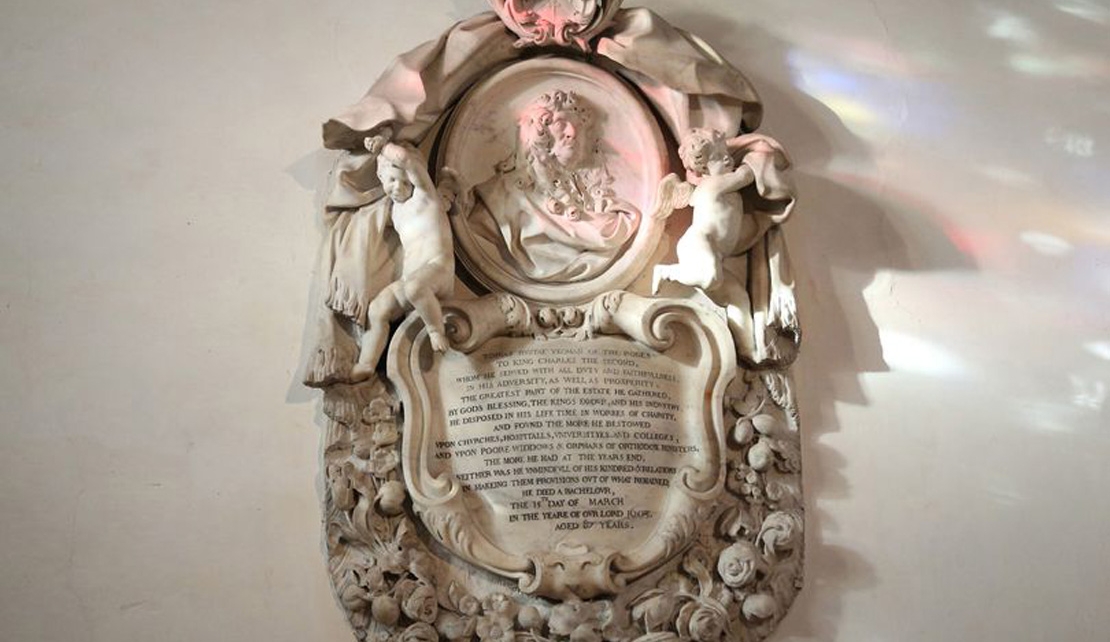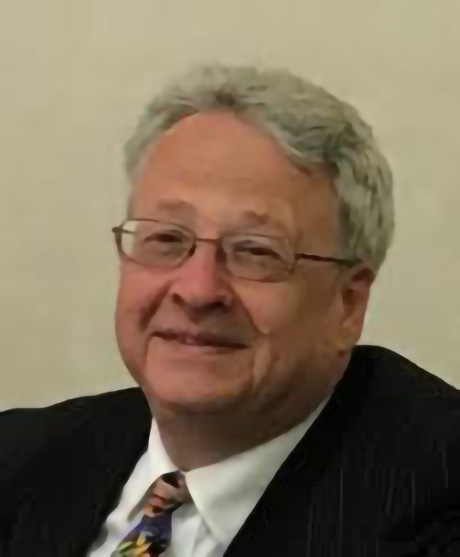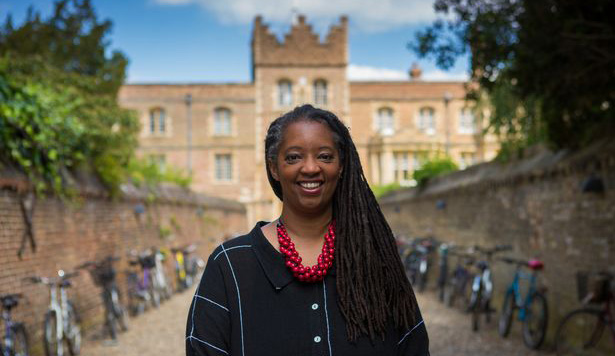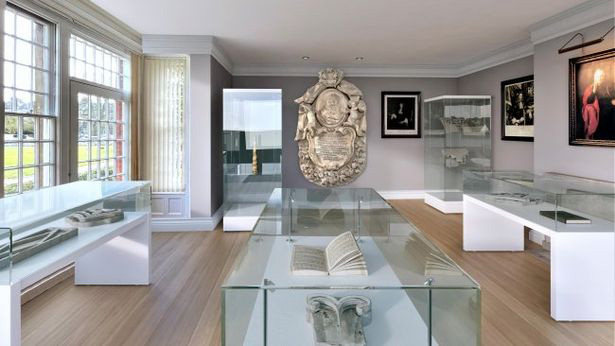BRITAIN | Consistory Court hearing ends, Decision soon on slave investor memorial

CAMBRIDGE, England,February 5, 2022 - The Church of England’s Diocese of Ely on Friday ended three days of hearing into whether a monument to a slave trade investor should be removed from a Cambridge University college chapel to a permanent educational exhibition space in the College.
The ecclesiastical court, also referred to as a Consistory hearing, was held in the Jesus College Chapel, in the shadow of the memorial to Tobias Rustat which is prominently mounted on the west wall of the ancient church.

Tobias Rustat, who invested in the Royal African Company, a slave trading company, became one of Jesus College’s largest benefactors In 1671, when he donated £2,000 to Jesus College– a huge sum at the time – to fund scholarships for the children of Anglican priests.
The college last year submitted an application to the Diocese of Ely to relocate a memorial to Mr Rustat from its chapel to a permanent exhibition space in the college, as some undergraduates felt that “It’s totally wrong for the statue of someone who was so heavily involved in the horrific crimes of slavery to be glorified in the heart of our community.”
Mark Hill QC, representing petitioners who want the memorial moved, said the case is not about cancelling Mr Rustat, but about placing the monument in a location where it can be “interpreted, explained and fully dealt with”.
He said “we cannot hide” from the fact the memorial “glorifying the benevolence of a man who was responsible for investing in and directing companies which traded in enslaved people is an abomination that causes offence”.
Justin Gau, a lawyer acting for the Rustat Memorial Group of alumni which opposes the removal, said there was “no demonstration in any document that Tobias Rustat was any sort of slave trader”.

“There is not enough space on the wall … how big would a plaque have to be? How will we fit the stories of all the people who were enslaved and who died in the process?”
Mr. Gau argued that “no clear, safe, final destination” for the memorial has been agreed, and described the petition to move it as “a mess”.
On the practicalities of a move, Mr Gau said the 3.5 tonnes of marble is “not something you unscrew from a kitchen wall”, and branded it a “monument of national and international importance”.
He told the hearing the best approach would be to “contextualise” Mr Rustat’s life with a plaque nearby.
Mr Hill however pointed out that Historic England had concluded that removing the memorial from the chapel would still leave it as “a building of exceptional significance”.

Mr. Hill said it is clear that “the presence of the memorial and its prominent position in the chapel is undoubtedly compromising the work and mission of the Church of England.”
Gau, however, would not accept that and claimed that the proposal to reposition the monument elsewhere in the University, was “part of an unfortunate desire to, as it were, get rid of an elderly and unpopular relative, though one who has been hugely generous in the past.”
Gau added: “We say the best way to deal with a difficult relative is not to put them away but to live with them and learn from them.”
The lawyer who is working on behalf of the opposing alumni said a “bogus claim” had been allowed by petitioners to spread that Rustat made his fortune from the slave trade. Far from it, Gau said, Rustat “made no financial gain from any investment” in the slave trade, adding that “it might be of some pleasure that he lost money by doing it”.
But Mr Hill said it is “beyond dispute” that Mr Rustat had been an “investor, lender and assistant” involved with the Royal African Company.
He said moving the memorial would allow the “historical nexus” of Mr Rustat’s involvement “in both the slave trade and the college to be properly understood”.
He said Mr Rustat continues to be remembered “as a generous benefactor of this college” and that the historical figure was not being “cancelled or erased”, adding that the chapel “will always be his final resting place”.
-30-
